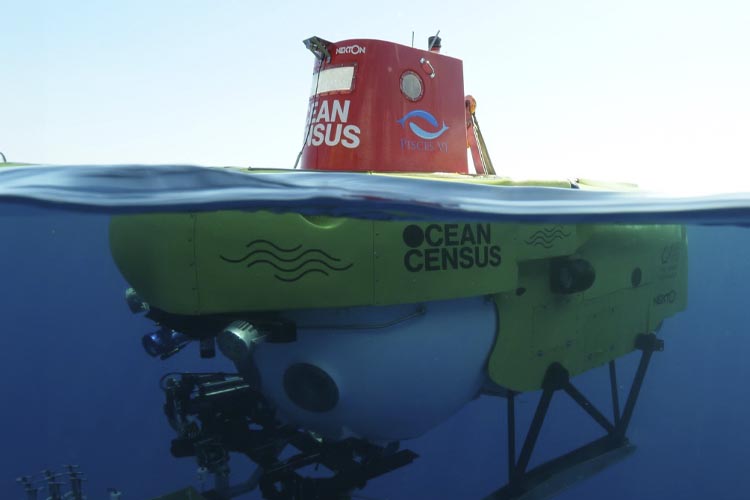
The Nippon Foundation-Nekton Ocean Census, a global alliance dedicated to the discovery and protection of marine life, has announced it has been officially endorsed as a UN Ocean Decade Programme.
The UN Ocean Decade project is an initiative to complete 10 different challenges over the next ten years, with the aim of bringing humanity closer to the world’s oceans in order to better protect them, as outlined in its ‘Vision 2030‘ statement. In doing so, a series of collaborative expeditions have set out to discover as many new species as possible within the timeframe, with some already returning outstanding results.
‘The UN Ocean Decade’s mission to leverage “The science we need for the ocean we want” is wholly aligned to our purpose,’ said Professor Alex Rogers, Ocean Census Science Director, ‘which brings together international partners to take on the global challenge to accelerate the discovery of new marine species to help combat the biodiversity crisis.’
Major expeditions to discover ocean life have already been undertaken by Ocean Census and its partners, including to the Arctic, central and Eastern Pacific, Atlantic (Macaronesia – Canary Islands), and South Pacific, resulting in the discovery of hundreds of new species.
More from the Ocean Census
- Scientists find more than 100 new species off the coast of Chile
- New species of mussel discovered in Alabama underwater forest
- 100 new ocean species discovered in New Zealand
- Mobile laboratories deployed to enhance ocean species discovery

‘It’s estimated that 75-90 per cent of the estimated 1-2 million marine species remain undiscovered,’ said the Nippon Foundation’s Mitsuyuki Unno. ‘Ocean Census is a moonshot to discover ocean life, setting out to reach the next important milestone of 100,000 new species.
‘If we can discover ocean life, we can help protect it,’ added Unno. ‘We have a race against time to discover new species before they are lost for future generations.’
Initiated in April 2023 by founding partners, The Nippon Foundation and Nekton, Ocean Census is an open, global alliance which already contains scientists from more than 250 institutes and 40 international partners, including universities, museums, governments, businesses, civil societies and philanthropists.
Some of the partners include national marine institutes IFREMER (France), JAMSTEC (Japan), NIWA (New Zealand), and IEO (Spain) alongside the UN Environment Programme World Conservation Monitoring Centre (UNEP-WCMC), World Register of Marine Species (WoRMS), Senckenberg Institute, and the Schmidt Ocean Institute.
In order to expedite the process of species identification – a process which can take several years to complete – Ocean Census has developed a new approach known as ‘cyber-taxonomy’ – using 3D imaging, DNA sequencing and machine learning to enable scientists to identify new species in a matter of days.
Ensuring that the new data is accessible to decision-makers and scientists, Ocean Census is in the process of developing the Ocean Life Cyber-Biodiversity System, which will be discussed at the 2024 Ocean Decade Conference in Barcelona, Spain.
For more information about Ocean Census, visit oceancensus.org, or follow on social media on Instagram @oceancensus, Facebook @oceancensus, and X @oceancensus


